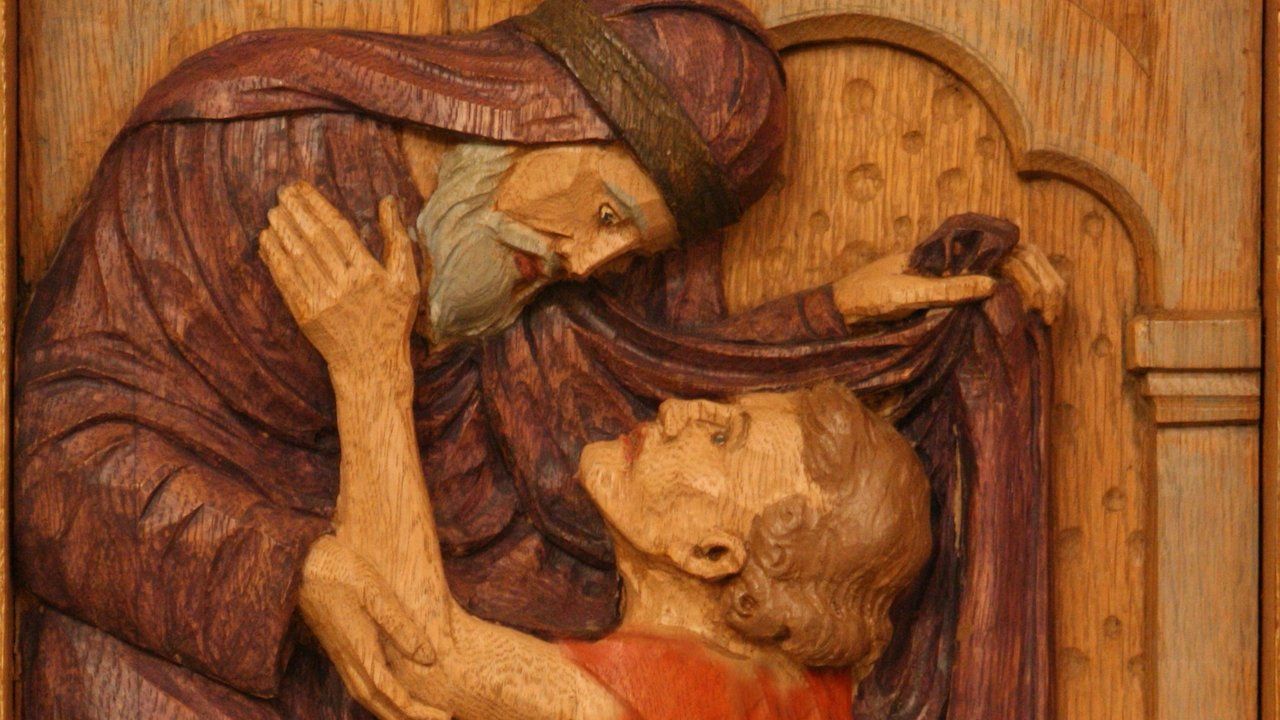ON JANUARY 1, 2012 at 6 PM, hope took in a quick breath, released everything it had left for this world, and lay ashen and still on a small bed in a nondescript room. I was sitting solitary by my father’s bedside, willing him to be released. Never did I think this task would be mine, as the youngest child and only daughter in the family. It was a beautiful and terrible assignment. At that time, I knew only that our 14-month family battle with brain cancer was over. I needed to wake my mother to tell her that her best friend and loving partner was gone. I had to call my brothers who had just returned to their homes from visits to say a painful goodbye to our father.
In the days that followed there were two services, one Mennonite and one Catholic (my father was both Mennonite and Catholic). Many people shared stories of how my dad had given them encouragement, believed in them, shared books and more books. There were many stories of touched lives. One pastor, whom my father had mentored, lingered long after the first service (the Mennonite vigil). I remember recognizing that he didn’t seem to want to leave, which would mean letting go, acknowledging the finality of this loss. We shared a brief conversation, both of us confirming what a source of light and hope my father had been. There was some comfort knowing that I wasn’t the only one feeling as if I’d lost access to a deep well of life-giving hope.
After the services, the reality of life without my dad sunk in. All of us grieve in our own ways and mine was deep and lingering. I am, as my husband likes to tell me, my father’s child. Caring, restless, idealistic, sensitive, and prone to dreaming like my father. Hopelessly on time (or early) for everything, bursting with the next idea, and riding waves of hope and despair almost as often as the changing weather of Kansas. Although, he was better than I at finding hope and resting in the assurance of his faith.
Overall, things were very gray in the year after my father’s passing, until I came closer to realizing what I was mourning. My dad was, for me, a beacon of hope and a source of love. I was drawn to him like a ship that has lost its way and seeks the friendly beam of a lighthouse. I realized I had depended on the inspiration, humor, and depth of understanding that my dad shared to help me navigate the rough waters of life. His love and faith in me were a constant guiding force and without them, I felt lost. I handled it in all the wrong ways, being snippy and morose and not talking about my sadness to anyone.
Realizing how great the loss had impacted me was a breakthrough. I don’t remember how or when I realized how to move on but I knew there was a way. I resolved to find hope and light again. I turned to quiet times in the outdoors, spiritual retreats, and books. I reread Sheldon Vanauken’s A Severe Mercy
and was comforted by the narrator’s realization that people who die can still work on our behalf. I read Henri Nouwen’s The Return of the Prodigal
and realized that perhaps it was time for me to stop acting as the young prodigal. It was time to seek to become more like the father and give what I had been accustomed to taking.
Once on a retreat, I talked to a priest and asked him, “Am I crazy for feeling like my dad is still present and communicating with me at times?” His reply, “No, you’re not. What would he say to you right now?” I could answer that question. He’d tell me to have hope. It’s been five years and that is still the message when I see my dad in my mind’s eye. A couple of months ago, on a particularly bad day, I came precariously close to firing God. I told God that I had no hope about a particular situation and if it didn’t get better, I was done with God. HA! Hope came showering down, like rain on a parched field. It is just too much a part of me and for that I am grateful.
I think of what my father often asked me, “Do you have hope?” I do. I know I have to keep seeking places and people who affirm this hope: my weekly church service, times with my grace filled mother, the work of places like Eighth Day Institute, and beautiful stories of saints, both ancient and modern. Hope slips through the hard dark places and provides just enough light for us to see the way. Julian of Norwich explains the care of God in with an analogy of a hazelnut: “It lasts and always will, because God loves it, and thus everything has its being through the love of God.” My father’s hope is part of the fabric of my being, as is the love of God. I will last, as will you, my friends. Let’s nurture the hope alive within us.
Ellen Herr Awe
lives in Wichita and teaches for USD 259. She reads as much as possible, tends a little garden and cherishes spending time with her grandson.










